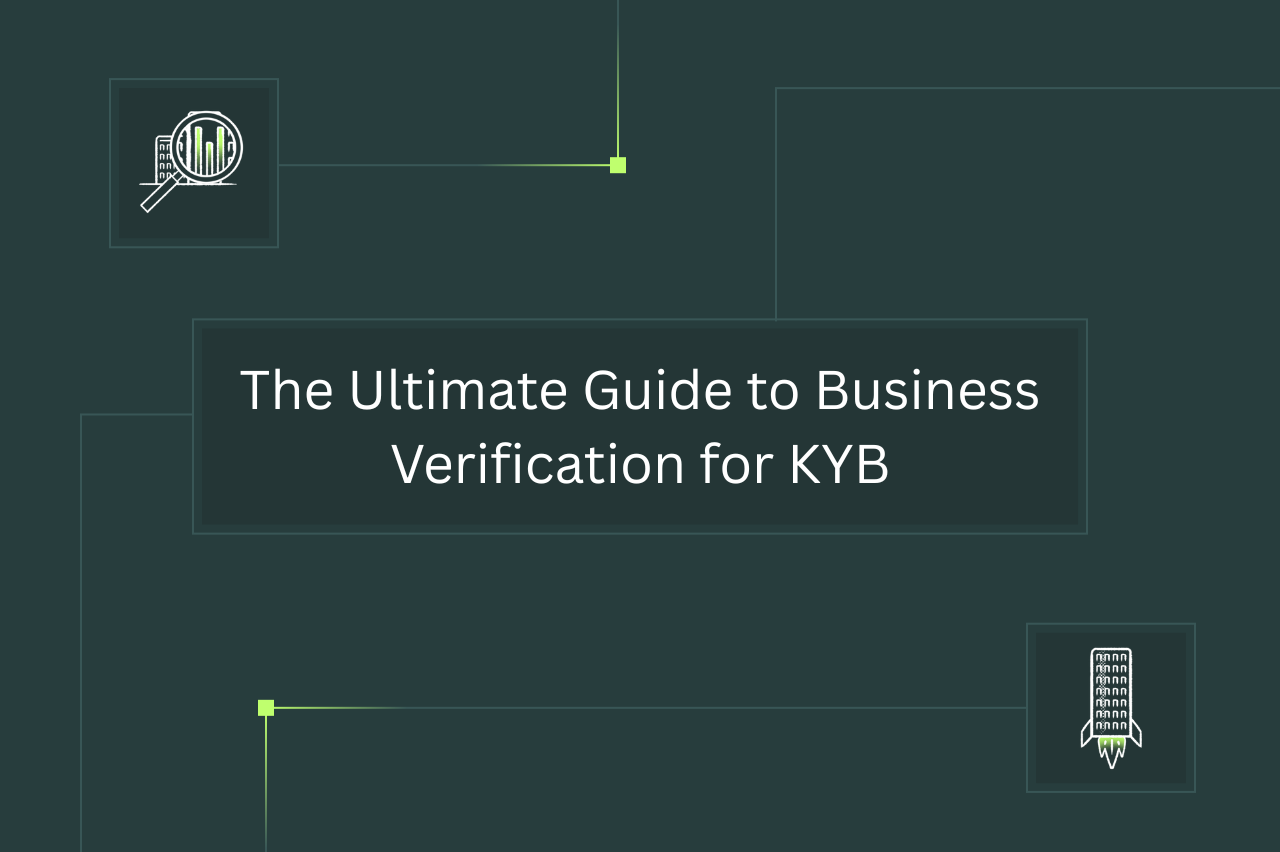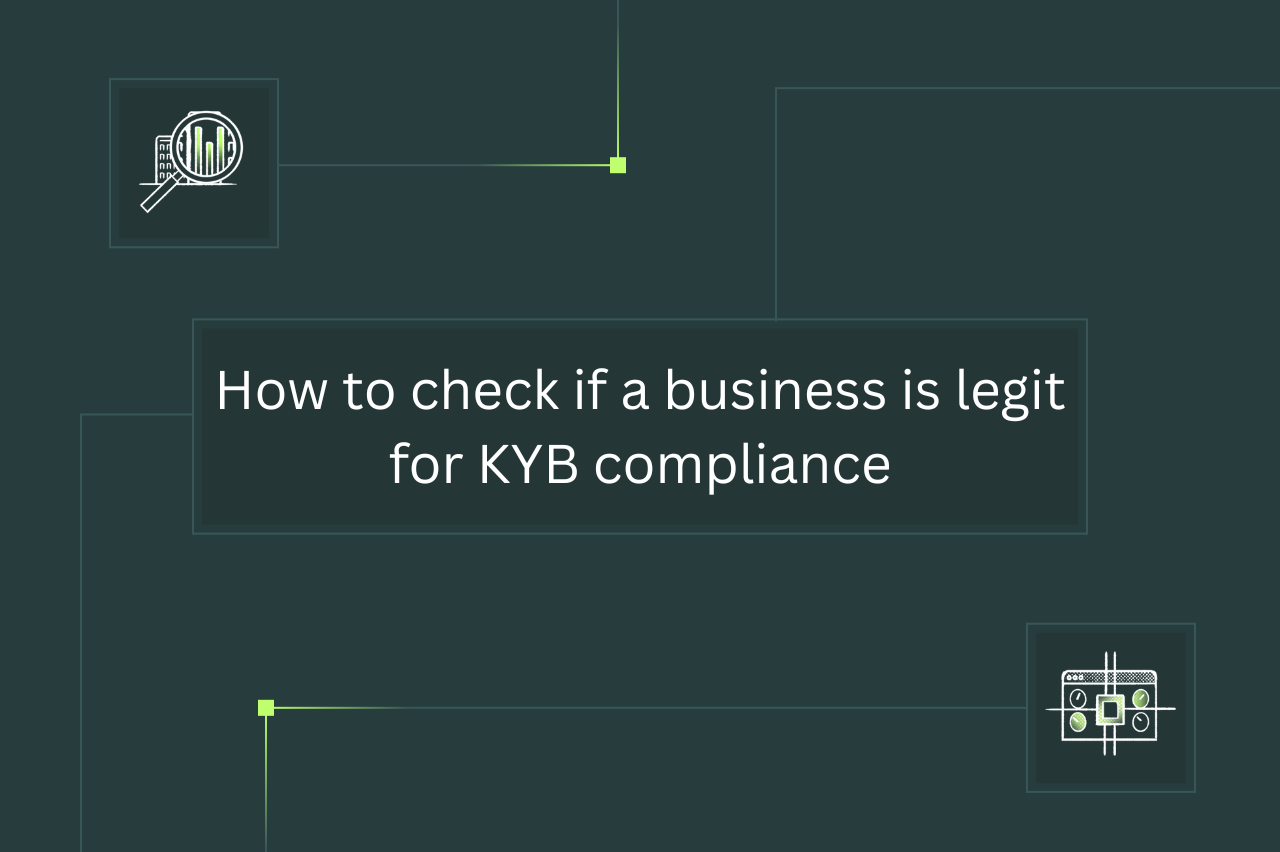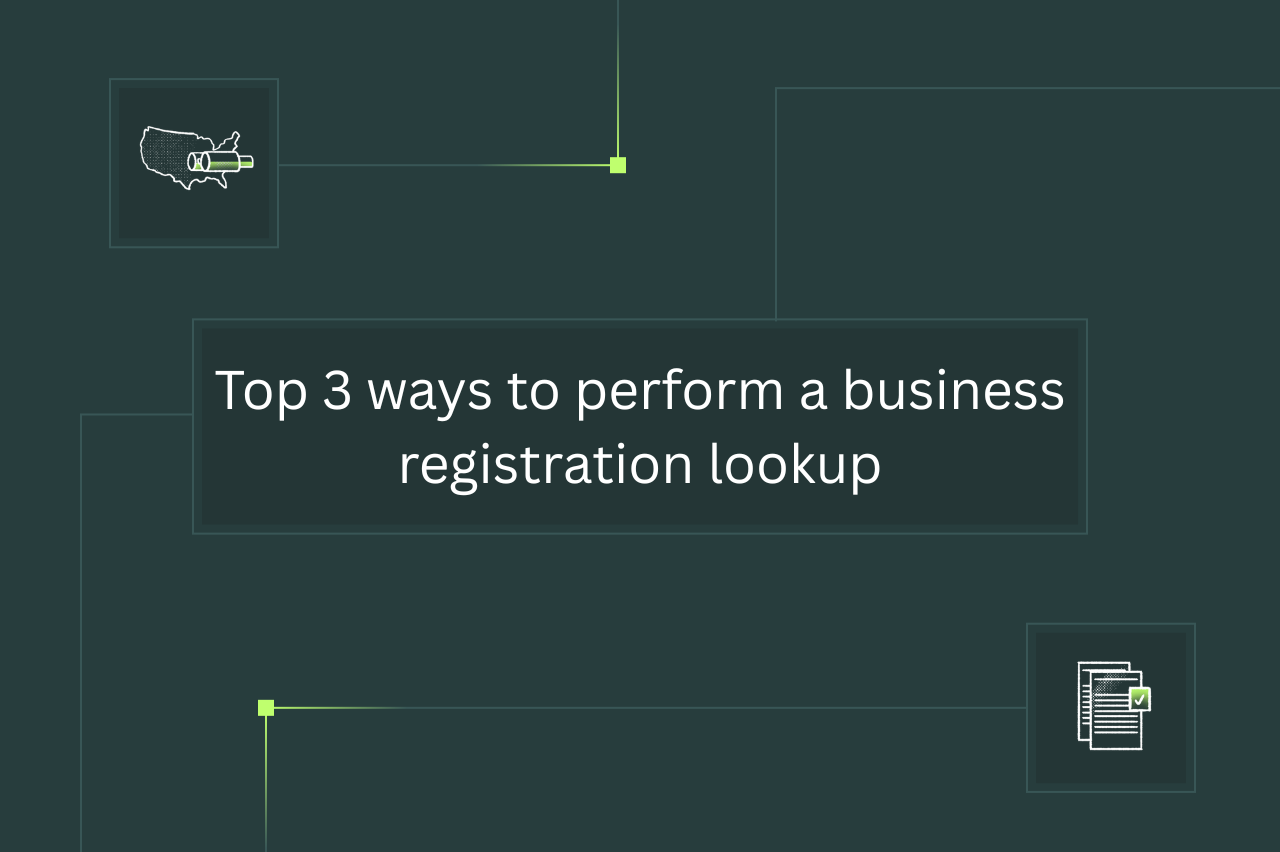In brief:
- Owners of LLCs are called “members”. People who run the everyday operations are called “managers”; they may be members, or they may be non-members elected by members. Both members and managers may have different official job titles.
- Businesses need to know the owners of other businesses for the sake of anti-money laundering regulations, like “know your business” (KYB) and “know your customer” (KYC). This promotes transparency in B2B relationships – especially through sometimes-opaque corporate structures – to eliminate illegal or overly-risky transactions.
- LLC owner names can sometimes be found by checking government registries, either online or by submitting formal public information requests. They may also appear on the company’s website or in other public records. The most efficient way to find them is to rely on a dedicated KYB solution.
Complying with worldwide financial regulations such as PEP or sanctions lists, means knowing exactly who your business is dealing with worldwide, and is a critical component of business verification. That includes not just other businesses and the risks involved in dealing with them; it also involves the people in control of those businesses and whether negotiations with them deserve any special caution.
Unfortunately, finding out who actually owns a business isn’t always a simple or efficient process. Beyond your local mom and pops, larger companies have more complex structures, and with something like an LLC, it’s often difficult to know who actually owns the business. That being said, it’s imperative that businesses are able to check if a business is legitimate before engaging in B2B relationships.
Some companies install non-owners in management positions to handle daily affairs, and many owners will be referred to as other titles that are more in line with their roles at their companies (for example, a CTO). So this piece will offer some advice for how to find out who owns a business, including:
- What is the owner of an LLC called & how can you find them?
- When do you need to know the names of who owns a business?
- 5 methods for how to find out who owns a business
- How to look up who owns a business: by region
The first step in how to find who owns a business is to know what they’re called.
Owners of LLCs are officially called “members”. Sometimes, members handle an company's daily operations themselves. Other times, they will elect one or more people to run the company on their behalf. These people are called “managers”, and they may or may not be members themselves.
Note that the terms “member”, “manager”, and “owner” aren’t always that informative when it comes to describing what someone does at a company. So these people often choose alternative titles to better represent their role within an LLC. Some common ones include:
- Chief Executive Officer (CEO)
- Chief Technology Officer (CTO)
- Chief Information Officer (CIO)
- Chief Financial Officer (CFO)
- President
- Principal
- Managing Director
- Creative Director
- Technical Director

To have a thorough understanding of the names of these people, you’ll need to check several different places. Official government websites often have registries of businesses in a country or territory. These can often be searched online, or else they will direct you how to request to find out the information you need. Sometimes a company’s website will list the owners, or have their names in a staff directory. Other times, you’ll have to look in alternative public records or specialized corporate databases.
As for why you need to know how to see who owns a business, a big reason is business regulations compliance. We’ll explain more in the next section.
It’s also critical that organizations are able to identify the ultimate beneficial owners (UBO) of a business, and who stands to gain in any way from the company they plan on onboarding.
Knowing who owns a business is a key part of complying with anti-money laundering regulations, especially “Know Your Business” (KYB) and “Know Your Customer” (KYC) identity verification rules. Some reasons for this are:
- Client authenticity and transparency – An essential part of preventing financial crime is ensuring identity credentials correspond to a natural person, as well as match the actual person involved in a transaction.
- Piercing opaque corporate structures – Some companies have complex management hierarchies that involve people with titles such as “nominee directors”, “corporate directors”, or “bearer shareholders”. This can make it difficult to tell who actually owns a company, which may be done intentionally to make financial crime harder to trace.
- Screening high-risk individuals – Some company owners may be from countries on financial sanctions lists, or may appear on these lists themselves. Other companies prospecting to do business with them need to know this information to be aware of who is risky – or even illegal – to deal with.
Trying to balance adequate risk assessment while not creating too much friction for your customer during onboarding is challenging, but an essential part of building out your KYB process. This ebook we put together can help you with that balancing act.
{{gated-content-block="/insights/how-modern-kyb-balances-security-and-customer-satisfaction-in-business-onboarding"}}
For regulatory reasons, LLCs are required to reveal who owns them – whether they participate in day-to-day business administration or not. This information isn’t always straightforward to get, though.
It can take a significant amount of time – and sometimes money – to request it from government agencies, or to search other public records. And companies can sometimes use confusing titles and leadership structures to make it difficult to tell the difference between who owns them and who simply manages them.
Available options may differ by region, but here are some options for how to look up who owns a business.
1. Consult a specialized corporate database like Middesk
Costs: $6-10 (based on volume)
Time Investment: Less than 60 seconds
How Strongly This Supports Compliance: Extremely Strongly
Your best bet is to employ a dedicated, all-in-one CDD solution like Middesk Verify. It instantly delivers results from many different sources such as tax records, state registries, websites, sanctions lists, USPS, legal filings, and more to get the information you need on an LLC. That not only includes ultimate beneficial ownership, but also if the business is in a restricted industry, in legal trouble, or on a sanctions list. Middesk results are delivered by API, so the results can be actioned off of automatically, or in an easy-to-use dashboard to accelerate manual reviews.
In addition to the time it saves, Middesk can also save you thousands in fees that may result from requesting information from government agencies.
2. Check government registers
Costs: Up to $5 per request
Time Investment: 10-15 minutes; it’s online, but may require some deeper digging
How Strongly This Supports Compliance: Strongly
In the U.S., all LLCs must register with the state in which they will operate. So checking state government websites – commonly the secretary of state office in each state – will usually yield a searchable database of licensed business filings. Not all filings will necessarily list an LLC’s owners, however. Some searches may also cost money.
3. Submit a public information request
Costs: $3-$5 per request
Time Investment: A few days to a few weeks, perhaps longer if submitting by traditional mail
How Strongly This Supports Compliance: Fairly Strongly
If you can’t find an LLC’s owners’ names in an online database, you may be able to get this information by submitting a public information request. Again, a government website (such as for a secretary of state’s office in the U.S.) should have instructions on how to do this. You may also be able to do this by visiting a local government office in the city where the LLC does business.
This is a fairly reliable method, but it can take time depending on how the request is filed. It likely also will cost a bit of money.
4. Look through alternative public records
Costs: Free
Time Investment: Minutes to hours; depends on how many options are necessary to explore
How Strongly This Supports Compliance: Not Very Strongly
There are other places where you may be able to find information on an LLC’s owners. For instance, you may be able to find the owners through:
- Vehicles registered to the LLC through a vehicle registration organization
- Personal property tax databases
- License to operate in a regulated industry (e.g. healthcare, insurance, banking)
- The financial institution the LLC does business with
These are all rather indirect options that should be used when a direct approach doesn’t work. So it may take you a while to go through a bunch of them before you turn up any relevant information, if anything at all.
In some cases, it may even be worth screening for adverse media to see if there are any news articles that can connect individuals to a business.
{{gated-content-block="/insights/report-middesk-index"}}
5. Call or email the business, or visit its website
Costs: Free
Time Investment: 5-10 minutes; phone call or email may take longer
How Strongly This Supports Compliance: Very Weakly
Many companies have “About Us” pages on their websites that list their executive staff. Sometimes they will also have a staff directory that you can search. Note, however, that these people may be simply managers and may not be the true owners of the company.
You can also call or email the business directly and see if you can get the owners’ names that way. However, it can be time-consuming to get in touch with a person who knows this information. And even then, they may not be willing or able to give it to you, and this information won’t be ‘official’ enough to comply with any regulations requiring knowledge of business ownership.
The following are official government websites for how to determine who owns a business in the U.S., Canada, and the EU member states. Some allow for searching the whole country, while others narrow down by jurisdiction. It may also cost money to make requests for some oy state
The United States: by state
Canada: by province/territory
European Union: by country
As you can see, there are many different databases you may have to query if you have multiple partners in different jurisdictions. And some may charge fees each time you request information from them.
On the other hand, Middesk can automatically check any of the U.S.-based databases required for compliance – and many other public records – for beneficial ownership information. This can not only save you the fees of repeatedly querying public databases, but also drastically cut the time needed for KYB and KYC identity verification checks before you onboard a new client business.
Talk to our sales team and schedule a demo to see how Middesk can help you quickly and easily find out who owns a business, as well meet your other KYB compliance needs.









